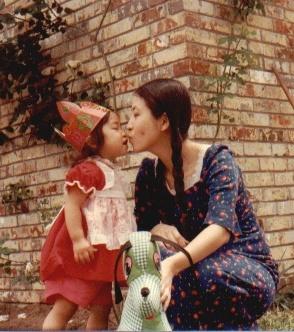
As I celebrate Mother’s Day, I think of all the great things my mother passed on to me—life lessons, acts of love and sacrifice, and words of encouragement and wisdom. But there’s something else she passed on to me, which I know she wishes she could take back.
Without knowing, my mother passed on the hepatitis B virus to me during childbirth. My grandmother also passed it on to her when there was no knowledge hepatitis B even existed. When I was born in the 1970s, the virus had only been discovered a few years before.
Forty years after the discovery of the virus, it is standard practice in the U.S. to test every pregnant woman for hepatitis B. Vaccines were developed in the 1980s, and by 1991 the hepatitis B vaccine was incorporated into the U.S. vaccine schedule for infants. If a mother has hepatitis B, her baby is given two vital immunizations within 12 hours of birth.
Hepatitis B is widely known as a “silent killer” because it can slowly destroy the liver without causing noticeable symptoms, but is responsible for 80 percent of the world’s liver cancer cases. Most people who have chronic hepatitis B became infected during birth or at a very early age. Mother to child transmission, also known as perinatal transmission, of hepatitis B is still a public health issue in the U.S. Roughly 800 newborns in the U.S. are chronically infected each year through perinatal exposure. If diagnosed early with regular medical care, routine blood work, and in some cases, antiviral medication, those that are infected can live long, healthy lives and avoid complications.
As a physician, vaccines are a key part of preventative care for my patients. When people ask me why their child needs a vaccine for hepatitis B, especially if the mother doesn’t have hepatitis B, I ask them to consider a few things. Hepatitis B is a common infection (1 in 12 worldwide have it), and you can’t guarantee that your child won’t ever be exposed to it. It’s primarily transmitted through contact with blood, and the virus can live on surfaces for up to seven days. Needle stick injuries, open cuts/wounds, bites, and sexual intercourse are all ways that someone could get the virus. On the flip side, casual contact, coughing/sneezing, breastfeeding, and sharing food are not ways the virus is transmitted.
If they are exposed, infants and children are more likely to develop a lifelong hepatitis B infection because their immune systems are not fully developed. If you could protect your child from a lifelong infection that could lead to cirrhosis and liver cancer, wouldn’t you? Take it from someone who has hepatitis B—don’t deprive or delay your kids from getting this life-saving vaccine.
I know my mother wishes the hepatitis B vaccines had been developed when I was born and that she didn’t pass on the infection to me. But because more is known about this disease today, and because the vaccines are now available, the hepatitis B legacy stopped with me. It's also a relief to know that my mother is one of the few who has naturally resolved her infection and is now free of hepatitis B.
I have three children now, each of whom received this life-changing intervention at birth, and as a result, all of them are free of hepatitis B. They will never have to live with this potentially lifelong infection. As a mother, not passing on the hepatitis B infection is really one of the best gifts I could have given them, and one of the most important lessons my mother helped to teach me.



The views and opinions expressed in this post are those of the author(s) and do not necessarily reflect those of MomsRising.org.
MomsRising.org strongly encourages our readers to post comments in response to blog posts. We value diversity of opinions and perspectives. Our goals for this space are to be educational, thought-provoking, and respectful. So we actively moderate comments and we reserve the right to edit or remove comments that undermine these goals. Thanks!